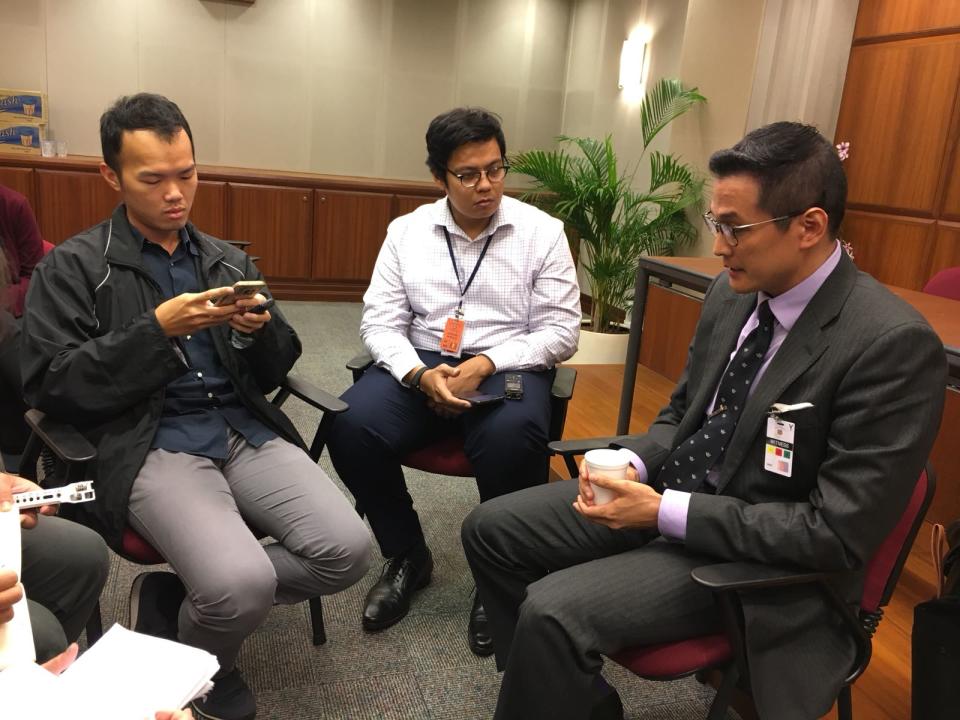COMMENT: Truths, half-truths and the Singapore story

The Select Committee probing the vexatious issue of deliberate online falsehoods must have a lot to chew on. Not just on the 170 submissions and answers from the 65 witnesses who spent more than 50 hours under the spotlight, some of them facing a public grilling not seen in Singapore politics in a long while.
What stole the spotlight was Home Affairs and Law Minister K Shanmugam’s interrogation of at least two of the witnesses, Facebook’s Simon Milner and historian Thum Ping Tjin. Enjoying every bit of his inquisitor-in-chief role, Shanmugam was very much in the driver’s seat with nobody in the panel, not even chairman Charles Chong, wanting to step in, thus leaving a sour taste in many Singaporeans’ mouths.
For all that has been said and done since 1990, when then-Prime Minister Goh Chok Tong spoke of moving away from a society that had been brow-beaten into submission by his predecessor Lee Kuan Yew, those two interrogations must have been, to put it mildly, one big disappointment. Welcome to the new-old Singapore where the rules of engagement, especially political engagement, are still stuck in the mire of what should have been a bygone era.
It was gut wrenching to watch the videos of the unflappable Shanmugam going for the kill and his prey, Thum, trying to look dignified and occasionally putting on a smile. The witness should have come with a watertight case to defend his thesis that the People’s Action Party government under Lee Kuan Yew had used falsehoods to detain political opponents during the police swoop of 1963, codenamed Operation Coldstore. There was no way Shanmugam was going to let that accusation go.
As the six hours of interrogation wore on, Thum had no choice but to admit that he could have also mentioned what former Communist Party of Malaya leaders like Chin Peng and other historians had said that ran counter to his narrative. His explanation that these accounts were not reliable just did not wash as those in the business will tell you that citing different points of view in a thesis is a basic tenet of research. And an opportunity to discuss the declassified Special Branch documents, which Thum cited as the main evidence in his thesis, was lost.
Who is right?

It was a very controversial part of Singapore’s history with historians and politicians going to and fro about why the more than 100 arrests were made. Just this week, a Facebook post by researcher and author Siew Min Sai added another complication to the Chin Peng story. She said that at a closed-door workshop in Canberra some time ago, Chin Peng answered many of the questions politely put to him which revealed that the CPM’s involvement in the Barisan Sosialis, a breakaway faction of the PAP, many of whose members were also detained, was not so clear cut. As Siew said: “It is not possible to prove or disprove a communist conspiracy because to do so involves using words or concepts not used by historical actors themselves who may have different perspectives on what they had done/were doing.”
If such a momentous event that happened 55 years ago is still fraught with the issue of what is true and false, then what about determining what is fake news in today’s technology-driven world? With all the sparks flying at the six-hour interrogation, very little time was spent on exploring this issue in depth. Still, there was a genuine desire, even among the very moderate participants like Carol Soon and Gillian Koh of the Institute of Policy Studies, that there should be a legal plus plus route – education to help the public sieve through the truths, half-truths, falsehoods and half-falsehoods that appear online. That stand should be celebrated as laws alone are not going to solve the problem.
It looks like legislation is a certainty, but the hope is that the government will try and convince the public why it needs another law when there are already so many in its arsenal. To name a few: the Sedition Act, Public Order Act, Protection of Harassment Act, Maintenance of Religious Harmony Act, Internal Security Act, Telecommunications Act and, not to mention, defamation laws. One course of action might be to examine these laws thoroughly and see if they can be amended or erased from the Statutes.
Singapore draws up laws at the drop of a hat. Officers of the Info-communications Media Development Authority were recently given powers to enter and search premises, without warrant, for not just obscene and unclassified films but also films banned by the government. They can also take statements as part of an investigation. Minister of Communications and Information Yaacob Ibrahim gave a rather unconvincing defence that this frees the police to focus on law and order and other threats to security. Many years ago, then-Senior Minister of State Ho Peng Kee also stood up to defend a law that prosecutes a person who is seen naked in his own house by a neighbour. Despite loud complaints, the law is still there, with no news about how effective it has been.
Of course, fake news has very serious implications for society. Drawing up a law will go some way to solving the problem. The long-term answer is to inoculate society against the ills of fake news and instilling in our society the smarts to distinguish the good from the evil.
You can agree or disagree.
P N Balji is a veteran Singaporean journalist who was formerly chief editor of Today, as well as an editor at The New Paper. He is currently a media consultant. The views expressed are his own.
Related stories



